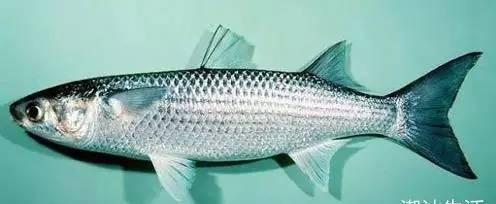
Hey! Isn't this a "mullet"?
Haha, it's not right or wrong. The "mullet" in the Chaoshan population is actually just a common name, and the big name of the family is mullet.
Mullet, mullet, mullet family. Also known as: Uchiha, Nine Sticks, Kwai Long, Field Fish, Aconitum, Mullet, Fat Fish, White-Eyed, Ding-Fish, Black-eared Mullet. The body is elongated, the front part is nearly cylindrical, the posterior side is flattened, the general body length is 20 to 40 cm, and the weight is 500 to 1500 grams. The whole body is rounded with scales, and the eyes are large and the eyelids are developed. The teeth are small, fluffy, and grow on the edges of the upper and lower jaws. There are two dorsal fins, fins with 8 fins, and a deep forked caudal fin. The body, back, and head are bluish grey, and the abdomen is white.
The fish is found in shallow seas along the Chaoshan coast, in estuaries, and in waters bordering freshwater and brackish water. Among them, the Shantou area is called the top product of the Mullet in Guandai Dongchi Lake, and there is "no food to go to Guandai, such as going to Shantou without going to the port". The meaning is that if you don't taste the Dongchi mullet here when you go to Guandai, it's like going to Shantou but not going to Shantou City.
Mullet is rich in protein, fatty acids, B vitamins, vitamin E, calcium, magnesium, selenium and other nutrients, and the meat is tender and delicious.
There is a food proverb in the Chaoshan region, "cold black hot perch", which means that the mullet in winter is the most seasonal in summer.
The Chaoshan people seem to have a soft spot for mullet, and there are many colloquial sayings related to mullet.
Such as "Chinese New Year's Eve pointed head winter festival wu".
"Pointed head" is a kind of fish at the confluence of rivers and seas. Winter festival refers to the winter solstice. The meaning of the whole sentence is that these two kinds of fish are the fattest during the winter solstice.
There is also "mullet gills, and the side of the cuttle is divided", which is more interesting, saying that the mullet is delicious, and even the gills that cannot be eaten are not distributed to others.
There is also a proverb of "June mullet has a mouth, bitter melon market le fish fat". Meaning: In June, the mullet is not ordered, but at this time, the bitter melon and the leu began to be freshly marketed.
So, although the mullet is good, it also depends on the season!
The fact that the mullet has such an unusual status in the minds of the Chaoshan people may also be related to its frequent offerings to the ancestors of the gods. In the Qing Dynasty, the Chaoyang Shalong Zheng clan Renfang kept a list of the clan's four-hour sacrifice, and one of the fish indicated that it must be made of mullet or mackerel (blue-spotted mackerel). In order to maintain the shape of the offering, most of the mullet is scaled and de-bellyed and steamed in its entirety, called "raw cooking mullet".
After this "raw cooking mullet" is worshipped, it can be eaten. Chaoshan people are accustomed to mullet meat with condiment Puning bean sauce, fish meat is delicious, bean sauce is salty, and there is a flavor Oh ~~
During the Spring Festival, one of the auspicious home-cooked dishes in Chaoshan people is braised garlic with mullet. The mullet here naturally prays for more than every year. And garlic, and "counting" harmonic sound, implying that there is money to calculate and money to persuade (saving).
Doesn't it say "cold hot perch"? Friends, it's time to eat "mullet"!